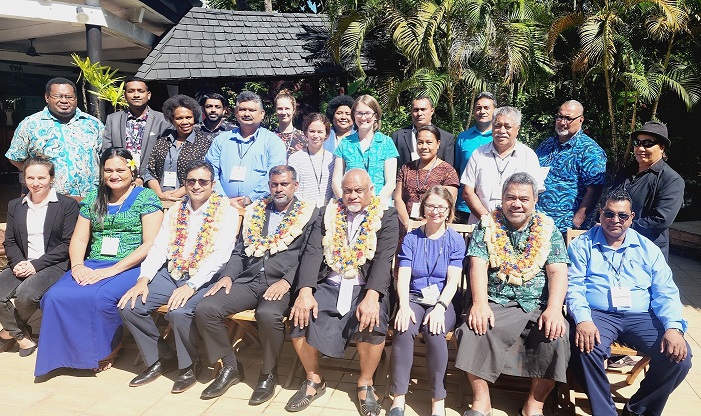Biosecurity and plant quarantine experts from across the Pacific came together in Nadi this week to find solutions for preventing the spread of plant pests and diseases and mitigating trade-related biosecurity risks in the region.
Biosecurity Authority of Fiji (BAF) chairperson Naushad Ali said the COVID-19 pandemic had adversely affected biosecurity activities.
He said in addition, as international travel and trade increased after lockdowns, more vigilance was needed to prevent new pest incursions and outbreaks.
“Food security is threatened by an alarming increase in the number of outbreaks of transboundary pests and diseases of plants,” Mr Ali said.
“This reinforces the importance of international cooperation, and this is why this three-day workshop is important for our respective countries and the region as a whole.”
The Pacific region is at high risk of the devastating impacts of pests such as the Fall Army Worm and the recent introduction of the Coconut Rhinoceros Beetle in Vanuatu, the Solomon Islands, and parts of Papua New Guinea.
With new resistant strains of pests emerging, strengthened biosecurity and plant health efforts have become critical, as incursions can take millions of dollars to control.
The Pacific Community’s Land Resources Division Market for Livelihoods Programme Leader Dr Viliami Kami said it was essential to understand and recognise the unique context and calamities facing the Pacific region, which was prone to natural disasters and on the frontlines of the climate change crisis.
“For many of us at this meeting, we are aware of how this influences the risk of pests and invasive species and the need to be extra vigilant at our borders.
“This meeting provides the opportunity to engage Pacific experts so that the draft ISPMs are sound and effective.”
The three-day gathering highlights the pivotal role of the International Plant Protection Convention (IPPC), especially the Pacific Plant Protection Organization (PPPO) housed at SPC LRD, including Pacific conditions and priorities when reviewing international biosecurity standards.
The meeting brought together more than 25 biosecurity and plant health experts from the region, including representatives from the Food and Agriculture Organization (FAO) Sub-Regional Office and IPPC Secretariat.



